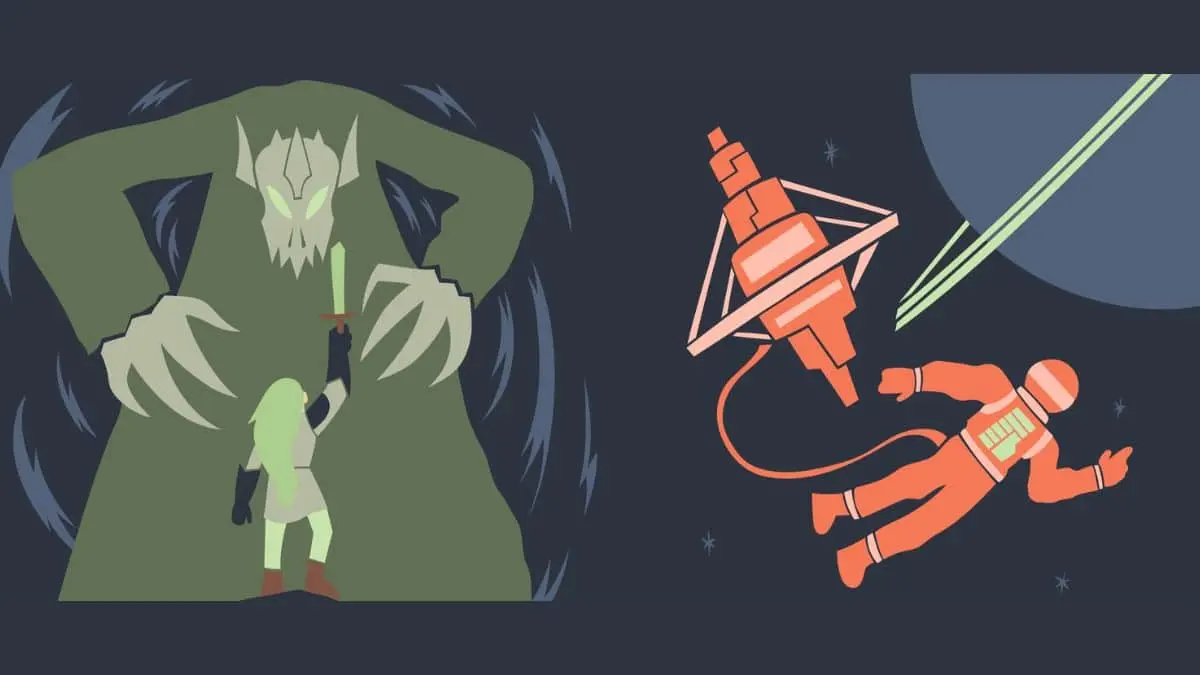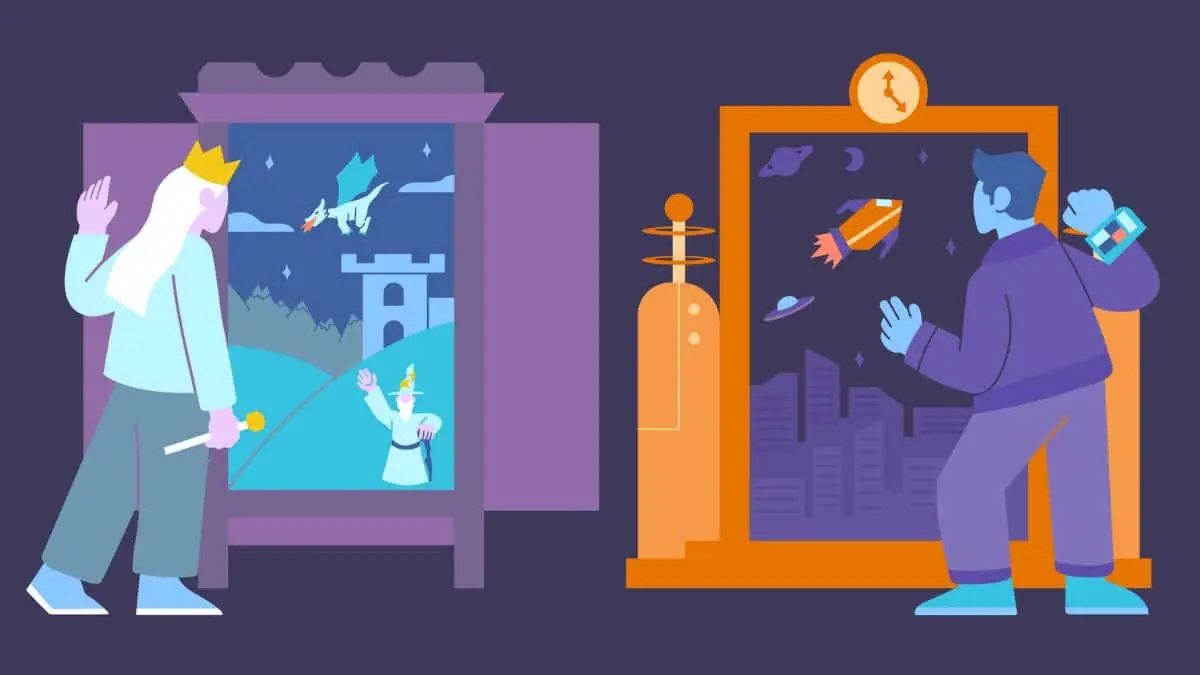Science fiction and fantasy, the twin pillars of speculative fiction, are often lumped together, especially in popular culture. Bookstores often house them on the same shelves, and films from these genres share fan conventions. Yet, there’s a world (or perhaps a galaxy) of difference between them. In this blog “Science Fiction vs. Fantasy” we will be Exploring the Key Differences between the two.
Foundational Differences
1. Basis in Reality
Science Fiction: At its core, science fiction springs from extrapolation. It takes what we know — the known scientific facts, theories, and principles — and asks, “What if?” Science fiction explores the possibilities of the universe by adhering, at least loosely, to the rules of science.
Fantasy: Fantasy, on the other hand, is rooted in the impossible. It thrives on magic, supernatural elements, and worlds that don’t adhere to our known laws of nature. While it can be inspired by myths, legends, and real-world cultures, fantasy isn’t restricted by the boundaries of reality.
2. Themes Explored
Science Fiction: Often, science fiction delves into themes related to the impact of technology on society, the nature of humanity, space exploration, and the future. Classic works like Isaac Asimov’s “Foundation” series or Philip K. Dick’s “Do Androids Dream of Electric Sheep?” ponder the moral and societal repercussions of advanced technologies.
Fantasy: Fantasy leans into themes of heroism, destiny, good vs. evil, and the quest. Works like J.R.R. Tolkien’s “The Lord of the Rings” or George R.R. Martin’s “A Song of Ice and Fire” showcase intricate worlds where magic and might determine fates.

The Gray Area: When Genres Blur
It’s worth noting that not all works fit neatly into the “science fiction” or “fantasy” box. Some straddle the line, creating a fusion that’s rich and intriguing.
For instance, Anne McCaffrey’s “Dragonriders of Pern” series introduces readers to a world with dragons (often a staple of fantasy) but justifies their existence with genetics and features a society that has forgotten its spacefaring origins.
Setting and World-building
1. Environments
Science Fiction: Sci-fi settings are often futuristic, set in space, on other planets, or in a post-apocalyptic Earth. Think of the cyberpunk world of “Blade Runner” or the intergalactic politics in frank Herbert’s “Dune.”
Fantasy: These worlds are often reminiscent of ancient or medieval Earth, though not bound to it. They can also be entirely unique realms where magic is as natural as breathing, like in Brandon Sanderson’s “Mistborn” series.
2. Characters
Science Fiction: Protagonists in sci-fi might be astronauts, scientists, hackers, or even AI. They often face challenges requiring technological or scientific solutions.
Fantasy: The roster here includes wizards, warriors, elves, dragons, and other mythical beings. Their challenges might require magical solutions or epic quests.
Aesthetics and Inspirations
1. Science Fiction’s Muses
Science Fiction: Sci-fi often finds its muse in current scientific debates, breakthroughs, or dilemmas. The rise of AI, space colonization, or genetic engineering can spark entire subgenres.
2. Fantasy’s Rooted Legends
Fantasy: Fantasy often draws from ancient myths, folklore, and legends. The Norse mythology inspires parts of Tolkien’s Middle-earth, while “The Chronicles of Narnia” by C.S. Lewis borrows from various mythologies and religious tales.

Influence on Culture and Adaptations
Both science fiction and fantasy have significantly impacted popular culture, especially in cinema and TV. While sci-fi gives us franchises like “Star Wars” and “Star Trek,” fantasy has blessed us with “Harry Potter” and “The Chronicles of Narnia.”
Both genres offer a means to escape, to dream, and to reflect on our society. Whether it’s the moral questions posed by a future dominated by AI or the timeless battle between good and evil in a land of magic, these genres offer worlds of wonder and wisdom.
Conclusion: Embracing Both Worlds
While science fiction and fantasy are distinct genres, they both serve a vital purpose. They allow us to explore the known and the unknown, the possible and the impossible. Whether you’re a die-hard Trekkie or you dream of riding dragons, there’s no denying that these genres enrich our literary landscape and challenge our imaginations.
Also Read: Animated Cartoon Character: Journey From Sketch to Screen



